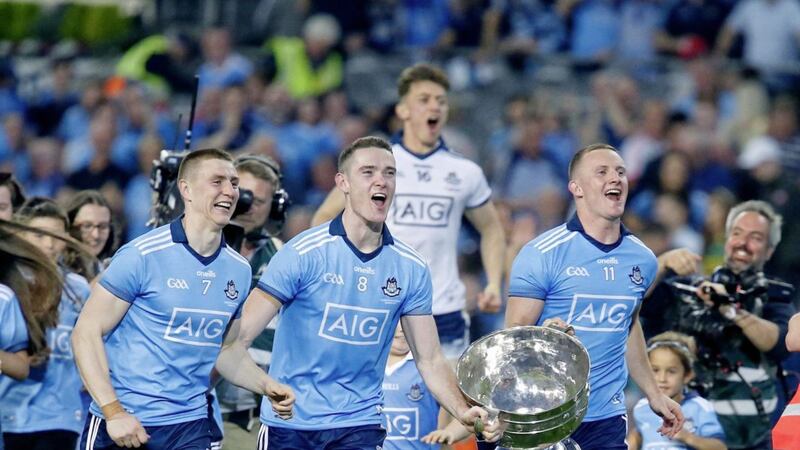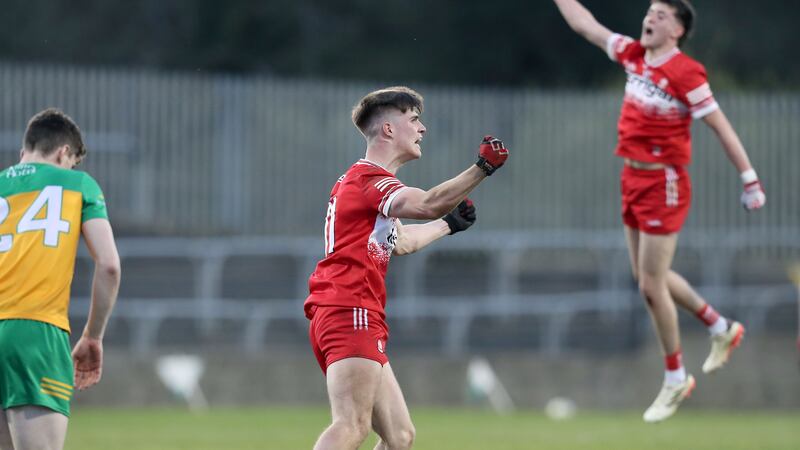Timing is everything they say.
Great comedy, movies, even a person’s journey through everyday life.
The outcome or perception of any situation is massively impacted by the order in which things occur.
I’m increasingly of the belief that timing is also critical in any re-structuring of the GAA calendar.
Because of COVID and the unprecedented changes it has brought to the fixture list, there is a growing groundswell of opinion for an uninterrupted period for club competitions.
The Club Players Association (CPA) hit the headlines with their strong words only a few weeks ago while even the Gaelic Players association (GPA), albeit, from a different standpoint, are now proposing that the county calendar be cut to five months.
The momentum, at present, is undoubtedly with a move towards independently-timed club and county seasons with no or minimal overlap.
The Gaelic Athletic Association (GAA) are, of course, skilled momentum killers... for evidence ask the CPA.
Such moves will likely hit the many ‘what about’ barriers that can be thrown up in objection to such momentous change.
Setting that aside for a moment and imagining that the GAA were ready to take on this ground-breaking re-organisation of competitions, then the timing becomes the key decision.
In all previous GAA models and indeed that proposed just this past week by the GPA, the county season is run first, usually from the start of the year to mid-summer with the remainder of the year left to clubs.
Given the tradition of a winter league campaign and a summer Championship this has obvious grounding in our national sporting psyche.
This deep hold can be seen in the proposals from the fixture task force which came out last winter.
In those, they juggled giving a club month of April with an earlier rapped up county season with keeping a prolonged county season but creating more club weekends within it.
None of these gets close to what is being enjoyed by clubs currently.
Now that the genie is out of the bottle, I very much doubt that either of those main approaches will hold much appeal to the vast majority of club or county players.
The current unfettered access to all players and a set fixtures list at club level feels like a luxury or a privileged position. It shouldn’t.
As the penny drops that it is a choice, it becomes very difficult for the GAA to go a different route.
If clubs were allowed full crowds at present, I reckon the interest would be at its highest in years.
I believe timing is central to this.
There is something that feels right about the club season occurring first.
The county game is the star, and it’s the biggest draw and excitement in GAA town.
In the movies, the big climactic moments do not come mid-show; they arrive at the end.
The audience can enjoy the story-building and know there is something even bigger ahead.
At present we are enjoying the multitude of stories and narratives that come out of a typical club season, and yet a part of us can relish the thought of the big county games that lie in wait.
There is a logical progression too for the players.
They must find their form with their clubs before earning the step up to county level and the challenge of upping their game still further.
We all get to see them across the club games in the first half of the year and then see how they transfer it to county level.
By the end of January, we are all well starved of action and ready for a new year to commence.
The club leagues would be a perfect draw over February to May and then into the club championship occurring from May into July.
With this, the club player would be out January to July.
Seems short, yet there’s easily enough time for 20 games.
The fact it comes with full panel training and games throughout means its a world away from the current 10-11 month season.
Here, a similar number of games are played out with the sort of hop-scotch irregularity and second class feeling that has brought about much of the current frustration.
Having thoroughly enjoyed the club season the GAA big show could then get started.
The majority of the county games, including national league and early championship would be played over the classic Championship months of July to September.
From a sporting attention point of view they would continue to enjoy their prime time summer billing that they are desperately trying to cling onto.
From mid-October on, your ‘Super-8’ or equivalent stage of the two-tier national Championships would get going.
Yes, this would be competing with other sports at this time of year but the big rounds of the GAA Championship will always draw its crowd and in grounds much more suitable for holding games at that time of the year than the average club pitch.
The year would end with the climax of the All-Ireland finals and we would all eat and be merry over Christmas ready to get back to basics in the New-Year again.
For me it can work.
It has a natural order to it.
At present of course, such chat all feels of secondary importance.
Our current situation feels like being in a battened-up, rickety building when there is a tornado roaming outside; its path uncertain, one change and our current season will lie in ruins.
Yet this tornado might just have shown us a solution to the unsolvable fixtures problem that has so plagued the GAA.
Whatever happens with this season, the bigger thing is what lies ahead.
Separate the seasons, condense the fixtures and, critically for me, get that timing right.
Maybe the perfect GAA calendar can exist after all.








